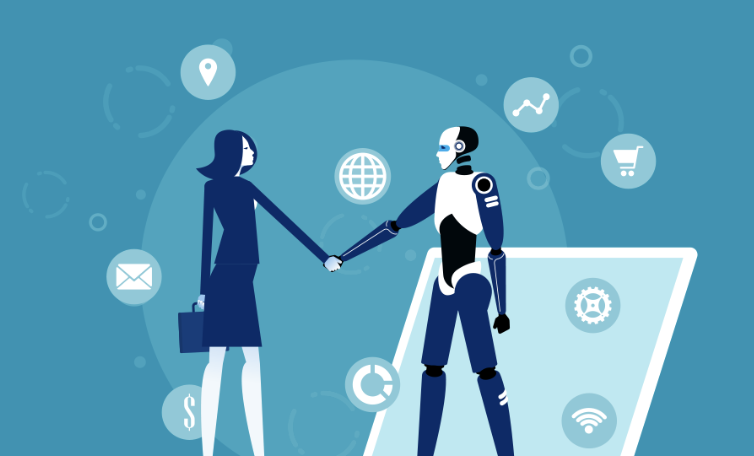
Mental
Health
Matters

When AI Goes Astray: The Cost of Blindly Trusting Technology
AI is causing real stress at work—38% fear job loss, and many report burnout. The problem isn’t just AI, but how it’s introduced and supported. Poor communication and lack of clarity ramp up stress, especially with agentic AI, which creates a sense of being watched and out of control. Mental health support isn't keeping up, and leaders often miss the signs. AI disruption must be seen as a psychosocial hazard, requiring emotionally intelligent leadership to manage the rapid change.

AI Anxiety: The New Psychosocial Hazard
AI is causing real stress at work—38% fear job loss, and many report burnout. The problem isn’t just AI, but how it’s introduced and supported. Poor communication and lack of clarity ramp up stress, especially with agentic AI, which creates a sense of being watched and out of control. Mental health support isn't keeping up, and leaders often miss the signs. AI disruption must be seen as a psychosocial hazard, requiring emotionally intelligent leadership to manage the rapid change.

Chicken or Egg? AI, Brain Strain, and the Burnout Spiral
As AI takes over routine tasks, many professionals are left operating in constant high-cognitive mode—without the mental breathers our brains need to recover. Add long hours, job insecurity, and emotional intensity, and you’ve got a burnout recipe few fMRI scans can fully explain. This article explores why the real danger isn’t overwork—it’s under-recovery.

The Ethics of Emotion: When AI Nudges Go Too Far
AI nudges can help—but when they’re unclear or imposed, they create confusion, not clarity.
No say. No context. No control.
That’s not support—it’s disempowerment.Real leadership means restoring agency, not just rolling out tech.Psychological safety starts with choice.

Self-Efficacy in the Age of AI: Building Confidence, Preventing Burnout
Burnout from change isn’t just about workload—it’s about uncertainty.
When people lack clarity, information, and control, stress spikes.
The fix? Self-efficacy—the belief “I can handle this.”
I help teams build that through one tool:
Name it. Frame it. Tame it.
That’s how we turn disruption into growth.

When the Machines Watch Back: Surveillance, Stress, and the Fractured Team
AI doesn’t just change how we work—it changes how we feel at work.
Surveillance, stress, and exclusion are real risks.
Tech won’t burn out your team—unsupported change will.
Lead with empathy. Support the humans, not just the tools.

The Human-AI Alliance – Why Emotional Intelligence Must Lead the Way
"Without emotional intelligence, we might just automate ourselves out of humanity."
Melika Mohammadzadeh’s latest research confirms it: The real risk in AI adoption isn’t tech—it’s emotional disconnection.
Emotionally intelligent teams don’t just use AI—they humanise it. And emotionally intelligent leaders are the bridge between automation and trust.
EI isn’t optional—it’s mission-critical.
How emotionally intelligent is your leadership culture?

When AI Joins the Team – Leadership's Role in an Emotionally Intelligent Transition
AI isn’t the problem. Our emotional readiness is.
As AI becomes standard, teams need leaders who build trust, not just systems. Emotionally intelligent leadership—empathy, presence, transparency—is now strategic.
AI runs processes. Leaders run emotions. Trust is the real infrastructure.

New VIC Psychosocial Regulations – What You Need to Know
Victoria is making workplace mental health a priority. New regulations from December 2025 will require employers to assess psychosocial risks, implement controls, and develop written prevention plans—raising the bar beyond other states. It’s not just about compliance; it’s about leading with care.

The Unseen Psychosocial Hazards of AI in the Workplace
When workers turn to AI instead of their managers, what’s really at stake?
AI is no longer just a productivity tool—it’s reshaping how we relate, communicate, and trust at work. As digital tools become the first port of call, we risk eroding the very foundations of psychological safety and belonging.

The Hidden Risks of AI in HR – A Psychosocial Hazard?
A Workplace Crisis We Aren’t Ready For

The Human Cost of AI – A Workplace Crisis We Aren’t Ready For
A Workplace Crisis We Aren’t Ready For

The Double-Edged Sword of Technology
Technology: Blessing or Burden?

Leadership’s Role in Addressing Psychosocial Risks
Why Leaders Are the Key to Safer Workplaces

Tackling Burnout in Australia—A Global Perspective
The Global Burnout Challenge: Insights and Solutions

Why Psychosocial Hazards Have Been Front and Centre Lately
Here’s the short version why psychosocial hazards have been such a hot topic over the past couple of years.

Mattering in Teams: Beyond Recognition to True Connection
3 Ways to Make Sure High Performers Feel Value

Leadership Insights: When Minimising is More About You Than Them
Your team's psychological safety matters more than your momentary discomfort.

The Iceberg of Innocence – Knowledge is King
There's been a noticeable change in the business landscape recently. Organisations are suddenly very keen to tackle the Psychosocial Hazards legislation and compliance.

What is growing in the Petri dish??
Remember back in high-school and biology class? One experiment was to see what we could cultivate or create in an environment we thought we controlled. The Petri-dish was used to create the conditions to grow bacteria in a controlled and anticipated way.
